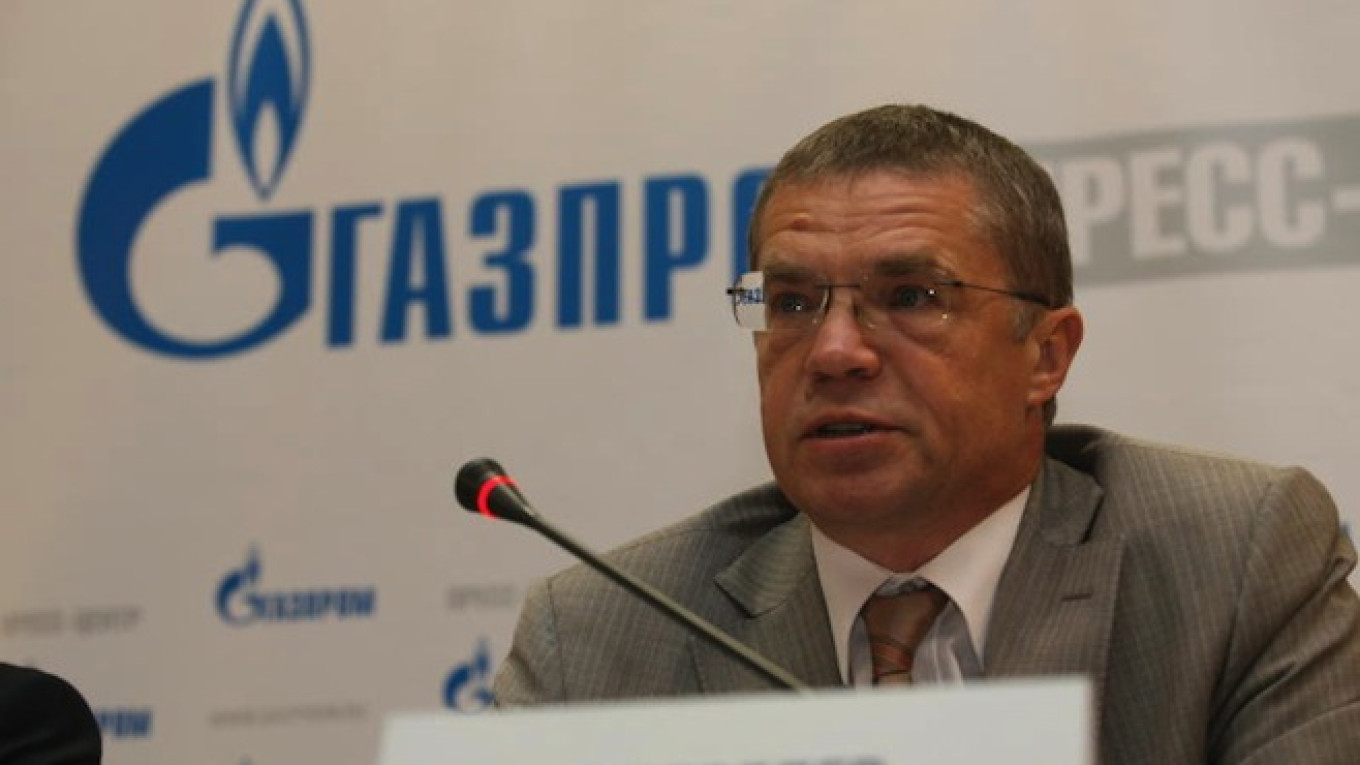In a surprise move, state-owned gas producer Gazprom has replaced Alexander Medvedev as head of its exporting arm, Gazprom Export, with one of his deputies, Yelena Burmistrova.
Medvedev, 58, will continue in his role as a deputy chief executive at Gazprom, the world's biggest conventional gas producer, overseeing foreign economic activities, social and sport programs, the state-controlled company said.
The decision comes as Gazprom looks to diversify its export markets and products.
An industry source said there was little reason to believe Medvedev, who had been head of Gazprom's export unit for 12 years, was being ousted.
"Gazprom's ambitious plans for external markets call for new structural and functional decisions," Gazprom CEO Alexei Miller said in a statement.
The 43-year-old Burmistrova started her career at commodities trader Glencore in 1992, joining Gazprom in 2003. She was appointed as Medvedev's deputy in 2011 to oversee liquefied natural gas (LNG) and new gas markets, among other responsibilities.
Underlining the importance of Gazprom in Russian politics as well as the economy, President Vladimir Putin met Burmistrova and Miller on Wednesday.
Kremlin spokesman Dmitry Peskov was quoted by RIA Novosti as saying that the three discussed "eastern projects" — an apparent reference to attempts to increase business with Asia following the signing of a 30-year gas supply deal with China in May.
An industry source said Medvedev's departure was "technical" as he had too many responsibilities as Gazprom Export head but that he was still overseeing export policy.
"They prepared the China [gas] contract together, she added a lot to preparations. Nobody is removing him, he is a board member responsible for contracts, talks, prices, etc.," another source said.
The more-than-$400-billion deal to supply gas to China will make Beijing one of the largest buyers of Russian gas, comparable with Germany.
"Medvedev... has been criticized by investors for his overly tough negotiating position and pricing policy with key European customers, especially after 2008, when Gazprom began losing market power in Europe," said Alexander Kornilov, an analyst with Alfa Bank.
European clients have demanded steep discounts from Gazprom by including a spot price element in contracts, leading to billions of dollars in back-payments by Gazprom.
"Investors would prefer Gazprom to be more flexible in talks with important European gas buyers... The market will likely receive Medvedev's departure positively, expecting his successor to be more receptive and less rigid," Kornilov said.
Russia shut off gas supply to Ukraine last month over unpaid bills. Ukraine is demanding a discounted gas price and has rejected one offered by Gazprom.
See also:
Gazprom to Buy Wintershall's Argentina Assets
A Message from The Moscow Times:
Dear readers,
We are facing unprecedented challenges. Russia's Prosecutor General's Office has designated The Moscow Times as an "undesirable" organization, criminalizing our work and putting our staff at risk of prosecution. This follows our earlier unjust labeling as a "foreign agent."
These actions are direct attempts to silence independent journalism in Russia. The authorities claim our work "discredits the decisions of the Russian leadership." We see things differently: we strive to provide accurate, unbiased reporting on Russia.
We, the journalists of The Moscow Times, refuse to be silenced. But to continue our work, we need your help.
Your support, no matter how small, makes a world of difference. If you can, please support us monthly starting from just $2. It's quick to set up, and every contribution makes a significant impact.
By supporting The Moscow Times, you're defending open, independent journalism in the face of repression. Thank you for standing with us.
Remind me later.


